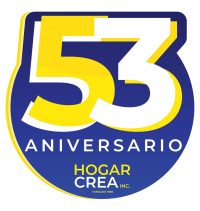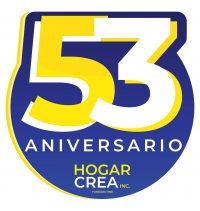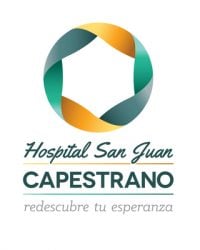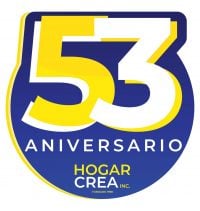Projecto Vivir En Control
Drug Rehab Center in Guayama, Puerto Rico
- Mental Health
- Dual Diagnosis
Projecto Vivir En Control is a residential addiction treatment center in Puerto Rico that offers personalized programs using evidence-based modalities to help individuals suffering from substance use disorder and mental health conditions become self-sufficient with the skills and tools they need to manage their challenges and sustain their long-term sobriety.
About Projecto Vivir En Control in Puerto Rico
Projecto Vivir En Control is a residential addiction treatment center located in Guayama, Puerto Rico. They offer programs that specialize in outpatient and inpatient treatment for individuals suffering from substance use disorder, mental health conditions, and concurrent disorders. The facility is staffed by trained and licensed professionals, providing each client with personalized care and support. They offer a variety of services such as individual psychotherapy, group therapy, family therapy, psychosocial assessments, and addiction education. Vivir En Control utilizes evidence-based modalities to help individuals identify their triggers and build skills to maintain sobriety, achieve stability, and reach their goals.
Projecto Vivir En Control focuses on empowering individuals to take control of their lives by deeply understanding their triggers and providing them with the tools and resources necessary to live a healthy and substance-free life. Their goal is to help individuals become self-sufficient with the skills and tools they need to manage their challenges and sustain their long-term sobriety. In addition to the standard services, project staff provides trauma-informed care, motivational interviewing, and relaxation techniques to help individuals replace their negative behaviors with healthy ones.
Projecto Vivir En Control has been accredited by The Commission on Accreditation of Rehabilitation Facilities (CARF) and is licensed by the Department of State of Puerto Rico. They also provide education to medical professionals, families, and local communities to increase awareness of addiction and mental health disorders. Projecto Vivir En Control was the winner of the "CASAL Award" from 2008-2013, and was recognized by the Substance Abuse and Mental Health Services Administration (SAMHSA) for their commitment to providing quality care.
Genders
Ages
Modality
Additional
Conditions and Issues Treated
A “dual diagnosis” is when the individual has two medical issues at the same time. The top co-occurring mental disorders with addiction are depression, anxiety, ADHD, bi-polar disorder. Addiction is also considered a mental illness that is not a choice but rather a medical condition. Addiction can be caused by any number of underlying issues.
Dual diagnosis is provided by Projecto Vivir En Control to treat addictive tendencies as well as any untreated mental illnesses. This ensures successful long term health and recovery for patients after treatment has been completed.
Dual diagnosis is provided by Projecto Vivir En Control to treat addictive tendencies as well as any untreated mental illnesses for people in Puerto Rico. This ensures successful long term health and recovery for patients after treatment has been completed.Levels of Care Offered
This center offers a variety of custom treatment tailored to individual recovery. Currently available are Dual-Diagnosis, Outpatient, with additional therapies available as listed below.
Outpatient programs at Projecto Vivir En Control, the Guayama resident can live with their family while continuing with their job or studies. Treatment includes educating the patient on drug abuse, medications, and counseling sessions at the individual or group level. Outpatient treatment plans cover diagnosis, detoxification, management, and counseling. They are a popular option for those who have graduated from inpatient facilities.
Therapies & Programs
Individual therapy is a form of counseling where you meet with a trained professional one-on-one. Meeting with a therapist in this setting allows for a personal and trusting relationship to be built. This allows the patient to open up about sensitive or private issues they may not feel comfortable discussing in a group. Individual therapy helps identify the root causes of your addiction, which can help prevent relapse.
Couples therapy for drug addiction is a unique form of therapy that allows family members to work through the emotional issues of their loved one’s addiction together. Family members can support each other while learning how to cope with the addiction and encourage healthy changes. The two will work with a therapist to learn how the addiction affects themselves and the relationship.
Family therapy is often done alongside drug treatment to help addicts stay sober. The goal of family therapy for drug addiction is to create an environment where communication can happen without judgment, hostility, or blame. The therapist will sit with the family so they can learn how to communicate differently and provide new tools for dealing with emotions so that people don’t want to drink or do drugs. It’s important for families to focus on relapse prevention plans during treatment so that if the addict feels like they want to use again, they’ll know what steps they need to take together to prevent it from happening again in the future.
Group therapy sessions are another common addiction recovery service. These group sessions typically involve six to 12 addicts who meet regularly with a trained professional for support and guidance.
During these sessions, the group shares their experiences with one another and provides feedback that can help each member avoid relapse or overcome specific obstacles they are facing in their recovery process. With this type of support and guidance, addicts can feel like they are part of a community that understands their struggles and will help them get through the hard times.
Cognitive Behavioral Therapy (CBT) focuses on the underlying thoughts and behaviors that caused the problem of addiction in the first place and may cause a relapse. Negative feelings are common in drug abuse disorders, but they can lead to co-occurring disorders if not recognized. CBT involves strategies that help to change the behavior pattern by restructuring negative thoughts into positive ones. It helps to remove these feelings, and it provides long-term benefits. Also, CBT promotes self-awareness and self-control. It can be administered as a monotherapy or as part of combination therapy.
CBT can improve the patient’s mood, reduce drug cravings and boost success rates on treatment plans. Regular practice can help individuals handle negative attitudes, thoughts, and feelings without turning to drugs or alcohol. The core belief of Cognitive Behavioral Therapy (CBT) is that one’s moods, behaviors, and actions are all connected. Individuals can improve their quality of life using CBT. It helps addicts understand the patterns of thought and feelings that cause them to use drugs or alcohol and develop a healthy response.
Patient Experience
Experiential Therapy at Projecto Vivir En Control
Drug addiction causes the formation of abnormal connections between neurons in the brain to form due to repeated exposure to drugs. These connections are responsible for addictive behaviors to drugs. Experiential therapy is done with patients individually and is different from traditional talk therapy. This therapy can help people revisit past traumas, heal, and move on in life in a more authentic way.
Experiential therapy uses activities to recreate experiences that may have caused trauma or negative emotions. These activities include role-playing, arts and crafts, animal care, music, or rock climbing. The individual will gradually experience calmness and love and change their perception positively through this therapy. Other than drug addiction, experiential therapy can be helpful for behavioral or eating disorders.
Payment Options Accepted
For specific insurance or payment methods please contact us.
Is your insurance accepted?
Ask an expert, call (888) 674-0062
Additional Details
Specifics, location, and helpful extra information.
Guayama, Puerto Rico 784 Phone Number(787) 318-2504 Meta DetailsUpdated November 25, 2023
Staff Verified
Projecto Vivir En Control Patient Reviews
There are no reviews yet. Be the first one to write one.
Guayama, Puerto Rico Addiction Information
Guayama's drug addiction situation is quite bad. Over 533 overdose deaths reported in 2014 significantly increased from the 368 overdose deaths reported in 2010. In particular, cocaine and heroin are two of the most commonly abused drugs in the city. A few different drug treatment options are available in Guayama, Puerto Rico. Some people may choose to attend an inpatient facility, while others may choose an outpatient facility.
Treatment in Nearby Cities
- Fajardo, PR (38.3 mi.)
- Cabo Rojo, PR (68.2 mi.)
- San German, PR (61.3 mi.)
- Mayaguez, PR (69.4 mi.)
- Dorado, PR (34.1 mi.)
Centers near Projecto Vivir En Control




The facility name, logo and brand are the property and registered trademarks of Projecto Vivir En Control, and are being used for identification and informational purposes only. Use of these names, logos and brands shall not imply endorsement. RehabNow.org is not affiliated with or sponsored by Projecto Vivir En Control.

